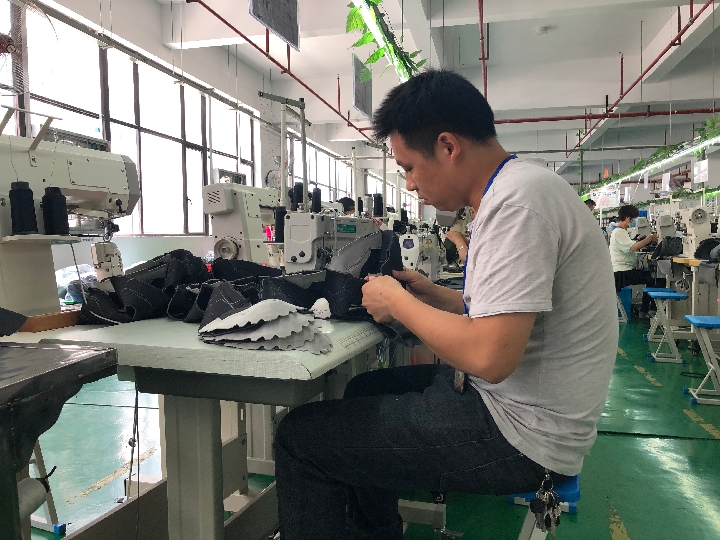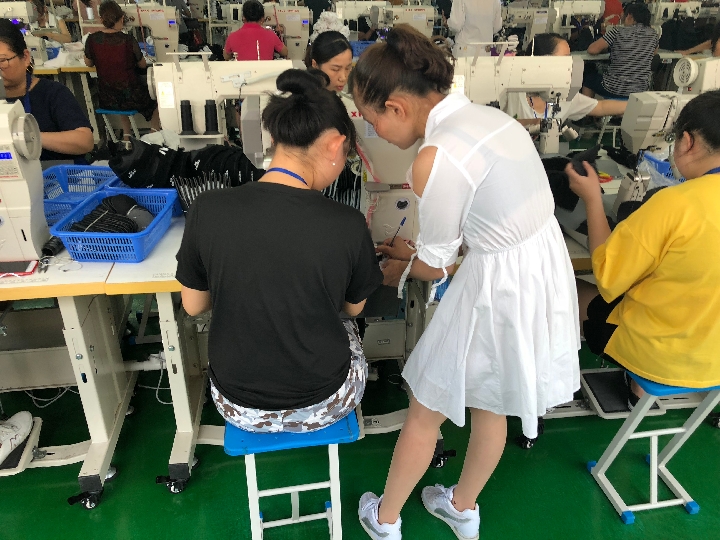Industrial transfer brings opportunities to hard-scrabble lives
In the industrial park of Cili County, many companies were relocated from coastal areas. The industrial transfer trend had aided county poverty alleviation efforts, bringing opportunities to hard-scrabble local people.
Every day, Chen Hongshuai carries a notebook to work so he can communicate with his colleagues.
The 33-year-old shoemaker cannot hear or speak, a congenital condition. But it has not been able to stop him from acquiring skills and earning an adequate living wage, which has also been made possible due to a trend of labor-intensive industries being transfered from China's coastal to inland areas.

Chen lives in Cili, an underdeveloped mountainous county in central China's Hunan Province. He once worked as a barber but it was difficult to make ends meet.
"Many young people had left to look for jobs in cities and my customers were mainly the elderly and children who couldn't afford to pay more than a pittance for a haircut," Chen writes on a piece of paper. "Besides, they also spaced out their visits to save money, and I didn't have a stable income."
However, an opportunity changed Chen's life.
Years ago, Hu Guotai, a Cili native, opened a shoe factory in Foshan, south China's Guangdong Province. Rising labor costs made him transfer the factory to Vietnam. But when the local government of Cili announced preferential policies, Hu took the factory back home six months ago.
The factory currently has more than 400 employees, of whom 83 are from impoverished households, including some with physical disabilities.
Chen's normal work is to sew different shoe parts together, which requires dexterous hands and a calm personality.
He said that it was difficult for him to operate the machine at the beginning. The demonstrations they were given were difficult to remember. So he asked the trainer to write down the instructions for him so that he could go through the steps at home.
He arrives at the factory by 7:30 a. m. every day, 30 minutes before it is time for work.
Besides communicating with others, he also writes down on his notebook the number of piece he stitches every day.
"The bigger the number in the notebook, the more the money will flow in my pocket," he writes, with a grin.
Peng Xia, who also cannot hear or speak, used to work for an electronic parts producer in Shenzhen City of Guangdong Province together with her husband. However, her husband was injured in an accident and returned home. Peng also had to go back to take care of the family.

When she heard about the newly opened factory, Peng applied for a job immediately.
Peng said she was determined to lift their three-member family out of poverty through hard-work.
In the industrial park of Cili County, nine other companies were also newly relocated from coastal areas. The local authorities said the industrial transfer trend had aided county poverty alleviation efforts.
A total of 10,242 impoverished local people have found jobs in the county.
The shoemaking company workshop is now rented. Hu plans to build his own factory in the near future. "Once it is built, we will be able to hire more local people," he said.